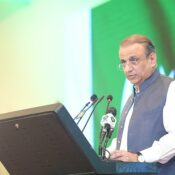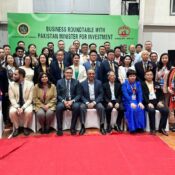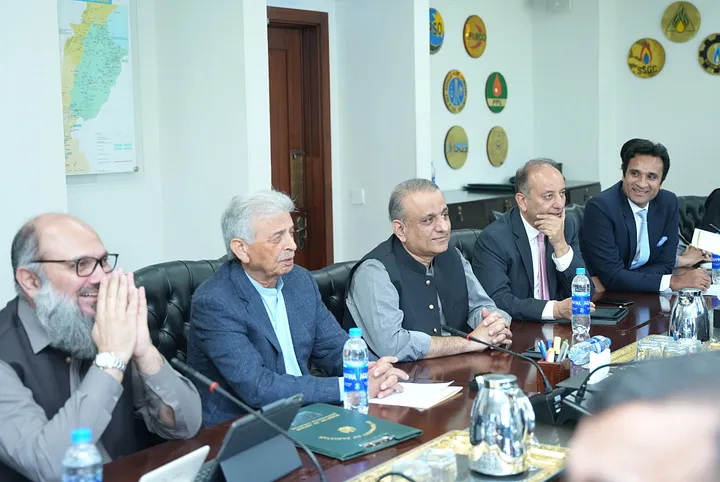
Abdul Aleem Khan’s vision for Progress: Insights from Recent Meetings and Their Potential for Pakistan
In the past week, Federal Minister Abdul Aleem Khan has been actively engaged in crucial meetings aimed at improving various sectors in Pakistan. Here’s a summary of the key developments from these meetings and their potential benefits for the country in the long run:
Gemstones Sector Reforms
Abdul Aleem Khan, leading the PM’s Steering Committee, successfully guided discussions on necessary reforms for Pakistan’s gemstones sector. The committee reached a consensus on several key changes, emphasizing the need for structural improvements and better facilities. The reforms include increasing the role of the private sector in decision-making and enhancing the sector’s overall efficiency.
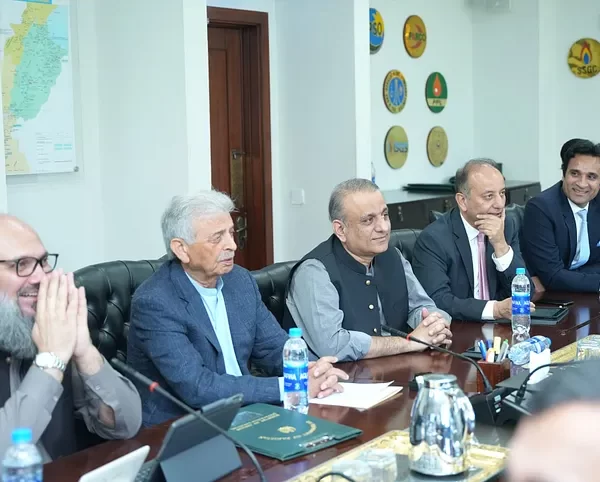
Long-Term Benefits:
These reforms are expected to boost the gemstones industry’s growth, create job opportunities, and improve Pakistan’s export revenue. By modernizing the sector, Pakistan can enhance its competitiveness in the global market and attract more foreign investment.
Road Safety and Infrastructure
In another significant meeting, Abdul Aleem Khan focused on improving road safety and infrastructure. Key decisions included implementing video surveillance for trucks on motorways, enforcing axle load limits on GT Road, and introducing a new toll collection mechanism. Khan also highlighted the need for a National Transport Policy and a detailed business plan for the National Highway Authority (NHA).
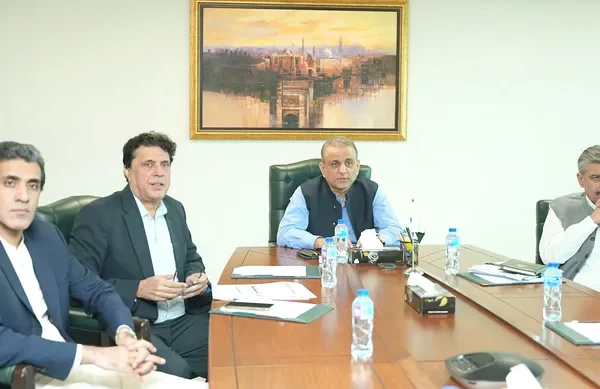
Long-Term Benefits:
These measures aim to reduce road accidents, enhance safety for travelers, and ensure better maintenance of highways. Improved infrastructure and safety protocols will contribute to more efficient transportation, which is vital for economic growth and development.
Pakistan Post’s Financial Health
Abdul Aleem Khan addressed the financial challenges facing Pakistan Post. He emphasized the need for a new business model to address the organization’s deficit and directed efforts to increase revenue through collaboration with other institutions and commercializing post office buildings.
Long-Term Benefits:
By implementing these changes, Pakistan Post aims to become financially self-sufficient, reduce operational costs, and improve service delivery. The commercial use of buildings will provide additional revenue streams, ensuring the sustainability and efficiency of postal services.
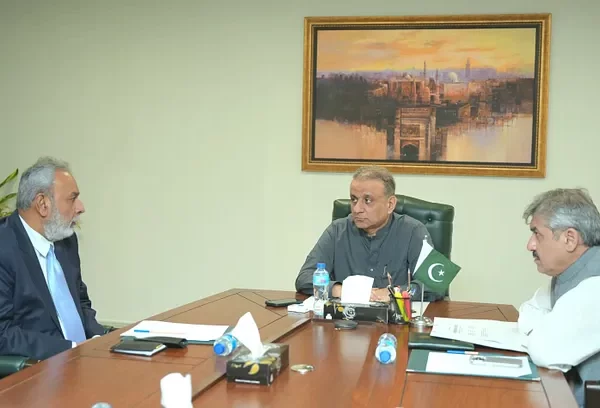
Meeting with the Saif ul Malook Khokhar and Muhammad Afzal Khokhar
Federal Minister Abdul Aleem Khan met with member National Assembly Saif-ul-Malook Khokhar and Muhammad Afzal Khokhar. The discussion focused on domestic and national political situation. The Khokhar brothers expressed their commitment to prioritizing national interests and collaborating on public welfare projects.
Long-Term Benefits:
This meeting underscores a collaborative approach to addressing national issues and implementing developmental projects. The shared focus on national interests and welfare initiatives is expected to contribute to Pakistan’s overall progress and socio-economic development.
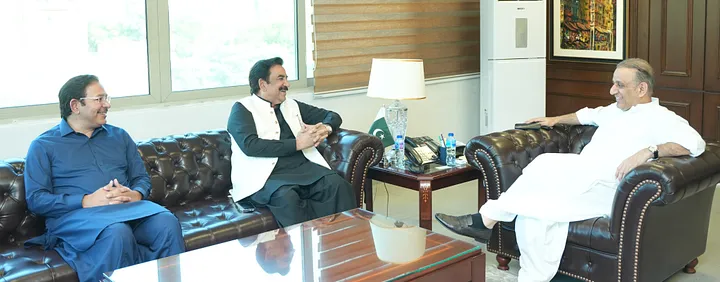
Discussion with Azerbaijan’s Ambassador
Abdul Aleem Khan also met with Azerbaijan’s Ambassador Khizr Farahkov to discuss enhancing business ties between Pakistan and Central Asia. They focused on the upcoming Pak Business Forum in Baku scheduled for September 16. The discussions emphasized fostering stronger economic relations and exploring investment opportunities.
Long-Term Benefits:
Strengthening business ties with Central Asia can open new avenues for trade and investment. The Pak Business Forum is expected to facilitate closer economic cooperation, attract investment, and boost bilateral trade, contributing positively to Pakistan’s economy.

Conclusion
Abdul Aleem Khan’s recent meetings highlight his proactive approach to addressing key issues across different sectors. His focus on reforming the gemstones industry, enhancing road safety, improving Pakistan Post’s financial stability, and strengthening international business ties demonstrates a commitment to long-term growth and development. These initiatives are expected to drive economic progress, enhance safety, and improve public services, benefiting Pakistan in the years to come.



